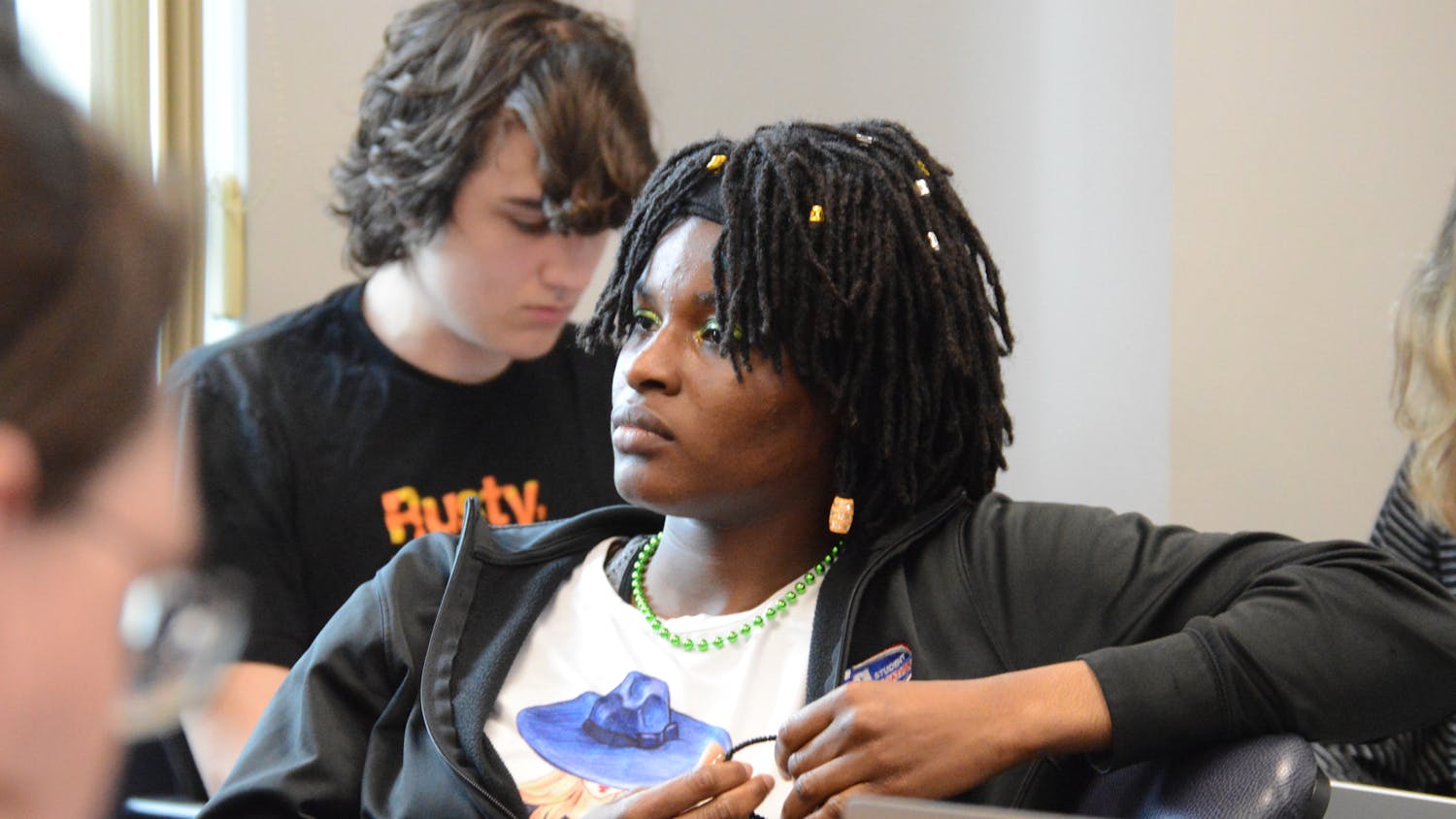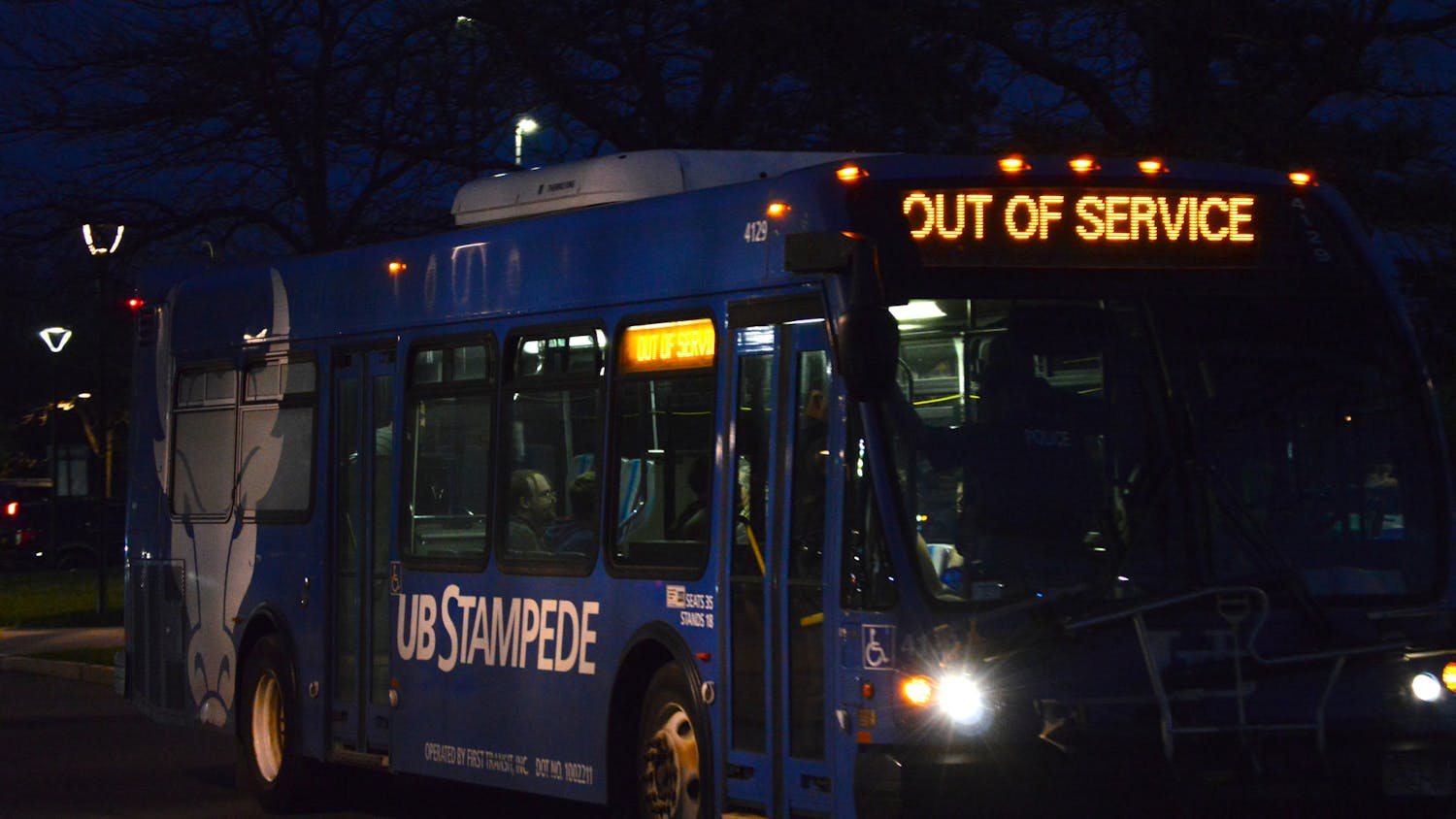Eight of the 11 businesses that rent space in The Commons are not following environmental suggestions set forth in a 2015 Professional Staff Senate resolution.
The PSS passed the resolution on Greening The Commons so businesses would replace styrofoam containers with environmentally friendly alternatives. Since The Commons is privately owned, UB cannot force the businesses to implement sustainable practices. Students and staff involved with the movement petitioned and handed out pamphlets to educate students on the importance of sustainability.
The resolution formulated a “red list” –– vendors that use styrofoam –– and a “green list” –– vendors who use recyclable containers –– and organized The Commons’ businesses based on their sustainability.
Many red-listed business owners voiced interest and support, but none took initiative to change.
The PSS chair Domenic Licata said the senate brought samples of replacement options to the vendors in The Commons and spoke with each business about the importance of sustainability on campus in an attempt to be more environmentally conscious.
Licata also said that a great step The Commons could take would be installing a recycling bin to encourage students to be more eco-friendly.
With recycling bins on the premises, vendors could wrap their food in plastic, paper or foil, which would then give customers the option to recycle, he said.
“Whether or not they are part of UB, they definitely impact how we are perceived,” Licata said. “Recycling is probably the single biggest thing they could do.”
At the time of the resolution, real estate company First Amherst Development managed The Commons, but it is now managed by UB Commons Inc. owned by law firm Phillips Lytle LLP. UB Commons Inc. did not respond in time for publication.
Another alternative is reusable containers. Starbucks, a green-listed business, recently gave free reusable cups to customers who purchased holiday beverages.
Still, the reusable route places more responsibility on the consumer.
Brian Stuhlmiller, a graduate student in science education and a student leader in the resolution, said reusable containers are ideal. If businesses offered reusable containers, students could bring them back each time they went to a restaurant, cutting down on the amount of styrofoam and plastic being wasted.
“Students have to remember it, [they] have to clean it,” he said. “But these are important steps [in becoming more sustainable] and I think that’s a major role students can play.”
Retired UB environmental science professor Joseph Allen now works at Earth Spirit Educational Services, a local not-for-profit environmental organization. Earth Spirit regularly holds events educating Western New Yorkers about the effects of not recycling properly.
Allen said although some styrofoam is recyclable, much of it still ends up in landfills. He said it is worth the expense for businesses to switch to compostable alternatives.
“I think compostables are the answer for everything,” he said. “It’s becoming more economical to do that and unfortunately, economics motivate those companies more than ethics.”
Without a solvent to break it down, polystyrene –– or styrofoam –– takes over 500 years to decompose.
While in landfills and waterways, styrofoam can partially photodegrade, or turn into powder under UV exposure. This allows the toxic substance to make its way into the food chain where it causes cancer and harmful neurological effects.
Licata said the eco-friendly alternatives they showed the vendors were not much more expensive than styrofoam options.
“The items were at the very highest 25 cents more for the containers of compostable material over the styrofoam,” Licata said. “We tried to convince the vendors that even if they had to raise their prices by a quarter, nobody would protest. But of course the business owners were very price-conscious.”
But business owners say it’s not that easy to switch to a new container. Styrofoam containers are typically cheaper than their recyclable counterparts, which discourages small businesses from making the investment.
Dominic Gallo, the manager of LaRosa’s in The Commons said that 25 cents more per eco-friendly container adds up and would force him to raise his prices.
But some employees feel the restaurant could do a better job of being environmentally friendly.
Ashley Wagner, a junior health and human services major, works at LaRosa’s. She’s willing to pay more for her food if it comes in an environmentally friendly container.
“We waste a lot of our styrofoam,” Wagner said. “People will say it’s to go but it’s for here and then they throw the boxes out when we could just give them plates. So that’s a big issue too.”
Madison Bunting, a sophomore business administration major, is a customer at The Commons. Bunting, along with many other students interviewed by The Spectrum said she would be willing to pay more for a recyclable container.
“Honestly, 25 cents isn’t that much of an increase,” she said. “For the few times a semester that I actually eat there, I don’t think it would be an issue.”
Licata said the resolution was not successful because many businesses ignored the suggestions and concerns from students in order to save money. He said that he’s glad the resolution raised awareness and hopes that students will continue to support the goals of the resolution.
Stuhlmiller said although students may be busy, the best way to change the future of sustainability is “to engage, to empower and to educate.”
Jacklyn Walters is the asst. news editor and can be reached at news@ubspectrum.com

Jacklyn Walters is a senior communication major and The Spectrum's managing editor. She enjoys bringing up politics at the dinner table and seeing dogs on campus.





